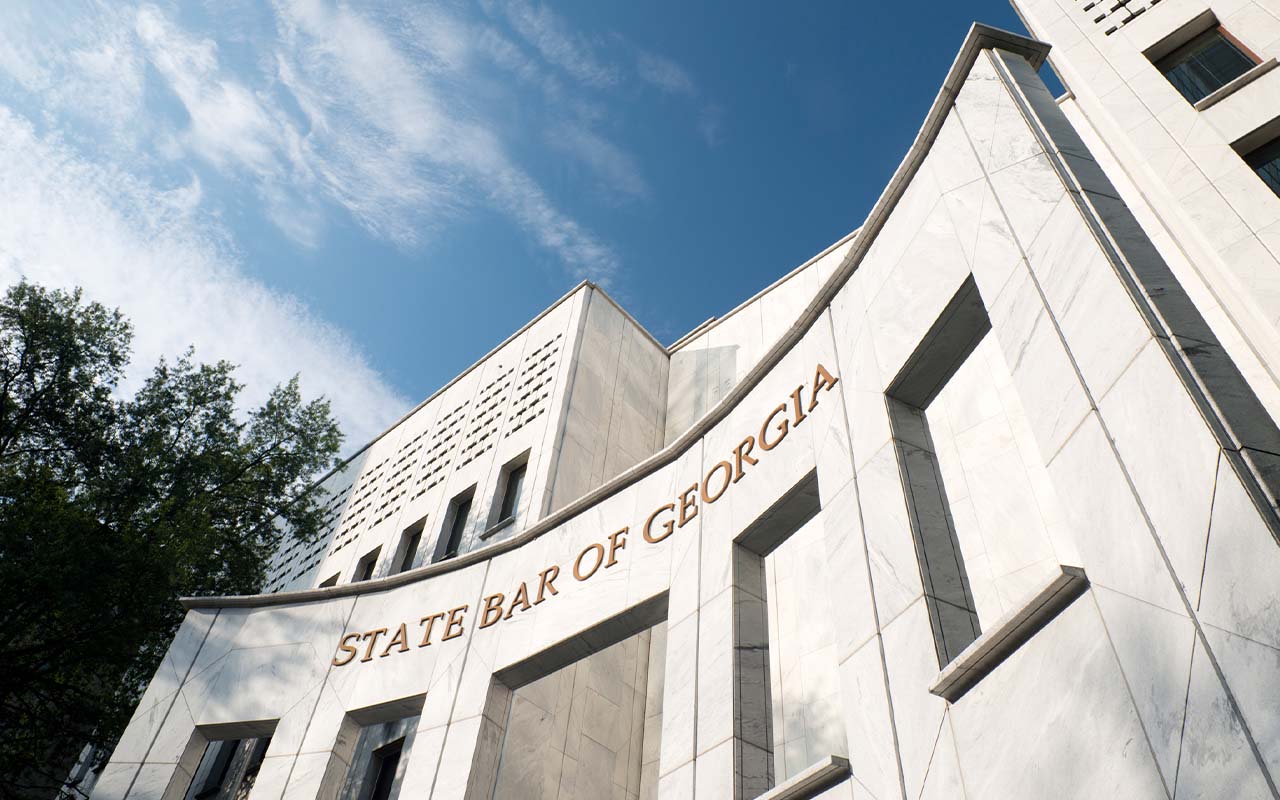April 2020
COVID-19 Resources for K-12 Schools, Colleges & Universities
Nelson Mullins’s School & College Law Practice understands the unique nature of educational institutions and the complex issues that COVID-19 has brought upon schools, colleges and universities. Our education team is actively monitoring developments at the federal, state, and local level in order to provide up-to-date guidance to educational institutions responding to the COVID-19 crisis. The following are some helpful resources. Please reach out to us if our team can assist your organization.
Categories
Assessments & Accountability
- Georgia Governor and State Superintendent announce the Submission of a Standardized Testing Waiver for the 2020-2021 School Year. In a joint press release, the Governor’s Office and State Department of Education announced that Georgia will submit a waiver to the U.S. Department of Education for the suspension of the 2020-21 Georgia Milestones assessment and CCRPI school and district rating. Georgia also announced that effective immediately, the Georgia Department of Education is suspending the teacher evaluation (TKES) summative rating for 2020-21. (June 18)
- The US Department of Education issues Fact Sheet on Providing Services to English Learners During the COVID-19 Outbreak. (May 18)
- Broad flexibilities provided to states to bypass ESSA mandated testing for the 2019-2020 school year due to COVID-19 national emergency. States education leaders can find the waiver application here. (March 20)
- The US DOE releases Fact Sheet: Impact of COVID-19 on Assessments and Accountability under the Elementary and Secondary Education Act (March 12)
Contracts & Operations
- COVID-19 Relief: Schools Can Accept Gifts from E-Rate Service Providers for Limited Time (March 20)
- Force Majeure and Other Potential Defenses to COVID-19 Related Contractual Non-Performance (March 19)
- Nelson Mullins Webinar: COVID-19: Legal Guidance for K-12 Schools (March 16)
Employment
Compensation, Paid & Protected Leave
- The US DOL announces the adoption of a Temporary Rule related to implementing new paid sick leave and expanded family and medical leave under the Families First Coronavirus Response Act. (April 1)
- DOL Issues Additional Guidance on FFCRA Paid Leave (March 25)
- New Employment Requirements for Colleges & Universities Under the Families First Coronavirus Response Act (March 20)
- The US DOL issues multiple guidance documents for employers on compliance with the FFCRA, including:
- US DOL Fact Sheets on Employee Paid Leave Rights and Employer Paid Leave Requirements under Families First Coronavirus Relief Act
- Families First Coronavirus Response Act: Questions and Answers
- COVID-19 and the Fair Labor Standards Act Questions and Answers
- COVID-19 and the Family and Medical Leave Act Questions and Answers
- Families First Coronavirus Response Act Notice – Frequently Asked Questions
- Field Assistance Bulletin No. 2020-1
- Webinar Slides providing guidance to employers regarding the FFCRA
Dismissals & Unemployment
Federal
- The US DOL continues to publish guidance documents relating to the administration of federal and state unemployment compensation programs in response to COVID-19. All Unemployment Insurance Program Letters (UIPLs) may be accessed here. (updated May 14).
- The US DOL announced the publication of Unemployment Insurance Program Letter (UIPL) 16-20 providing guidance to states for implementation of the Pandemic Unemployment Assistance (PUA) program. (April 5, 2020)
- The US DOL issued UIPL 15-20 providing guidance to states for implementation of the Federal Pandemic Unemployment Compensation (FPUC) program. (April 4)
- The US DOL issued UIPL 14-20 providing guidance to states re key Unemployment Insurance Provisions under the CARES Act. (April 2)
- The US DOL issued UIPL 13-20 providing guidance to states on key Unemployment Insurance Provisions under the FFCRA’s Unemployment Insurance Stabilization and Access Act of 2020 (March 22)
- The US DOL issued UIPL 10-20 providing guidance to states on Unemployment Compensation for Individuals Affected by COVID-19 (March 12)
Georgia
- The GA DOL provides Status Update on implementation of CARES Act unemployment benefits as well as changes to state unemployment benefits in response to COVID-19.
Health & Retirement Plans
- CARES Act – Group Health Plans and a Little Déjà vu to 2011 (March 30)
- CARES ACT– Impact on Tax-Qualified Retirement Plans (March 27)
- COVID-19 Employee Leaves, Layoffs and Reductions in Hours — Benefits Considerations (March 20)
- Families First Coronavirus Response Act — Impact on Employer’s Group Health Plans (March 19)
Tax Credits for Certain Private Employers
- The Treasury Department and IRS provided more guidance to employers about federal reimbursements for paying employees for sick and family leave during the coronavirus emergency. The IRS posted an explanation of the refundable tax credits available to small and mid-sized businesses that are required to provide the leave under a coronavirus-response package signed into law last month. (April 1)
- Employer Tax Credits Available Under The Families First Act (March 23)
Other COVID-19 Employment Guidance
- The EEOC issued updated guidance on What You Should Know About COVID-19 and the ADA, the Rehabilitation Act, and Other EEO Laws. The guidance provides answers to FAQs in the areas of (A) disability-related inquiries and medical exams, (B) confidentiality of medical information, (C) hiring and onboarding, (D) reasonable accommodation, (E) pandemic-related harassment, (F) furloughs and layoffs, and (G) return to work. (updated May 7)
- FFCRA Posters Available for Employers (March 26)
- The EEOC issued updated guidance for employers on Pandemic Preparedness in the Workplace and the Americans with Disabilities Act. The guidance updates the EEOC’s previous 2009 publication issued during the spread of the H1N1 virus to incorporate updates regarding the COVID-19 pandemic. In the guidance, the EEOC addresses relevant ADA requirements and standards, ADA-compliant employer practices for pandemic preparedness, and provides links to key EEOC and related resources. (updated March 21)
- Employer’s Quick Guide to Workplace Management and Communications With Employees for COVID-19 Issues (March 23)
- Nelson Mullins Webinar: COVID-19: Legal Guidance for K-12 Schools (March 16)
Funding - Spending Flexibility & Stimulus Relief
- The US DOE Office of Special Education and Rehabilitative Services and Office of Special Education Programs announced the process for State DOEs to submit waiver requests for the time period in which to spend federal fiscal year 2018 funds. Under the CARES Act, the Secretary of Education is permitted to extend the period of availability for certain federal funds. The DOE is now accepting waiver requests from state agencies. Once granted, the waivers will permit 2018 IDEA Part B funds to be available for obligation through September 30, 2021, and to be liquidated through December 30, 2021. (June 8)
- The US DOE issued FAQ sheet on Maintenance of Effort Requirements under the CARES Act. The guidance explains the state agency requirements to maintain funding support for both elementary and secondary education as well as higher education. While, in general, state agencies are required to maintain at least the average level of funding support provided in the past three fiscal years, the guidance also gives states significant flexibility in how to calculate this support and gives states the ability to seek a waiver from this requirement in the event of a “precipitous decline in financial resources.” (June 5)
- The US DOE Office of Elementary and Secondary Education releases guidance on Providing Equitable Services to Students and Teachers in Non-Public Schools Under the CARES Act Programs. The guidance, which has since been reiterated in a May 22 letter to the Council for Chief State School Officers, states that LEAS must ensure that the equitable sharing of funds for private schools based on overall enrollment within the LEA jurisdiction as opposed to poverty rates under traditional Title I eligibility. (April 30)
- Georgia DOE announces Georgia school districts to receive $411 million in CARES Act funding. The DOE also released allocation amounts per school district. (May 4)
- US DOE issues Fact Sheet for Transferring State- and Local-Level Funds (Section 4103 of the ESEA). The guidance addresses transferring federal formula grant funds under the Elementary and Secondary Education Act of 1965 (ESEA) from one ESEA program to another in order to meet pressing educational needs in light of COVID-19. (April 29)
- US DOE issues Fact Sheet for Repurposing Federal Equipment and Supplies to Combat COVID-19. (April 29)
- DOE Releases Initial Reporting Requirements for HEERF Recipients (May 7)
- DOE Releases $3 Billion Governor’s Emergency Education Relief (GEER) Fund (April 16)
- DOE Releases Guidance for Accessing Higher Education CARES Act Funding (April 10)
- The CARES Act Offers Relief Funding to K-12 Schools, Colleges, and Universities (April 7)
- The “Coronavirus Aid, Relief, and Economic Security (CARES) Act”: Summary of Major Early Childhood, K-12, and Higher Education Provisions (March 30)
- COVID-19 Relief: Schools Can Accept Gifts from E-Rate Service Providers for Limited Time (March 20)
Georgia - Shelter in Place
- Comprehensive Link to all of Georgia Governor Brian Kemp’s Executive Orders in response to COVID-19
- Georgia Governor Kemp issues two Executive Orders addressing COVID-19. Executive Order 05.28.20.01 extends the Public Health State of Emergency through July 12 unless renewed again. Executive Order 05.28.20.02 provides additional guidelines for “Reviving a Healthy Georgia.” This Order loosens the restrictions on gatherings from a prohibition on groups of 10 or more to a new standard of 25 of more individuals physically present in the same location. However, the guidance specifically addresses exemptions for schools, colleges and universities working to support distance learning, research, administration, maintenance or preparation for the 2020-2021 school year. The guidance also allows schools and school districts to provide summer school, Extended School Year services, and other recovery classes during this summer so long as additional measures to prevent the spread of COVID-19 are implemented. (May 28)
- Georgia Governor Brian Kemp extends shelter-in place and state of emergency until April 30, 2020. (April 8)
- Essential Businesses, Operations, and Activities Under Georgia’s Shelter in Place Order (April 3)
- Georgia Governor Brian Kemp issued an executive order to deputize sheriffs for enforcement of his Executive Order issued on April 2 regarding the shelter in place.
- Georgia Governor Brian Kemp issued an executive order requiring a shelter-in-place to enforce the closure of businesses, establishments, corporations, nonprofit entities, or organizations in accordance. (April 2)
- Georgia Governor Brian Kemp issued an executive order to extend the closure of all public elementary, secondary, and post-secondary schools in Georgia for the remainder of the academic calendar year. (April 1)
- Georgia Governor Brian Kemp issued an executive order declaring a Public Health State of Emergency in Georgia. The order states that Georgia is now limiting large gatherings statewide, ordering "shelter in place" for specific populations, and closing bars and nightclubs for fourteen days. (March 24)
Health & Safety
- The CDC creates webpage to address COVID-19 issues facing Colleges, Universities, and Higher Learning
- The CDC creates webpage to address Childcare, Schools, and Youth Programs
- The Georgia DOE in partnership with the Georgia Department of Public Health announced the release of Georgia’s Path to Recovery for K-12 Schools, a guidance document outlining considerations and recommendations for reopening schools. (June 1)
- The CDC releases Considerations for Institutes of Higher Education to assist IHEs in protecting students and employees and slow the spread of COVID-19. (updated May 30)
- The Occupational Safety and Health Administration (OSHA) issued Covid-19 Guidance on Social Distancing at Work. The one-page guidance gives 7 tips for employers to reduce the risk of exposure to coronavirus when employees begin returning to work. (May 28)
- The CDC releases guidance for Caring for People with Developmental & Behavioral Disorders.The guidance addresses a broad range of topics relevant to K-12 and Higher Ed education, including: (A) accommodations, modifications, and assistance, (B) developmental monitoring and screening of children during COVID-19, (C) distance learning for college or graduate school students with developmental or behavioral disorders, and (D) parents supporting children with distance learning. (May 27)
- The CDC releases guidance for Group Homes for Individuals with Disabilities. This guidance will be relevant for any school districts with students placed in a residential educational facility. (May 27)
- The CDC releases guidance for Director Service Providers of People with Disabilities. The guidance focuses on prevention techniques for therapists, paraprofessionals, and other direct support professionals working with students and individuals with disabilities. (May 27)
- Safety & Health Update – OSHA Guidance for COVID-19 (March 23)
- Nelson Mullins Webinar: COVID-19: Legal Guidance for K-12 Schools (March 16)
- Workplace Safety and Health Guidelines for Coronavirus Prevention (March 4)
- CDC Considerations for School Closure (March 13)
- OCR Coronavirus Statement (Letter to Education Leaders on Preventing and Addressing Potential Discrimination Associated with COVID-19) (March 4)
Higher Ed
- The CDC creates webpage to address COVID-19 issues facing Colleges, Universities, and Higher Learning
- Sports in Fall 2020? What are your legal protections if the event is cancelled? What are your your legal risks if the event is held? (June 2020)
- The CDC releases Considerations for Institutes of Higher Education to assist IHEs in protecting students and employees and slow the spread of COVID-19. (updated May 30)
- US DOE issues guidance addressing COVID-19 Title IV Frequently Asked Questions. (updated May 15)
- The US DOE’s Office for Civil Rights issues Questions and Answers for Postsecondary Institutions Regarding the COVID-19 National Emergency. The guidance document addresses many FAQs relating to compliance with student disability laws, Title IX, and civil rights requirements during distance learning and COVID-19. (May 12)
- DOE Releases Initial Reporting Requirements for HEERF Recipients (May 7)
- NACDA Webinar: COVID-19 & College Athletics: Cost Containment and Legal Landmines (April 29)
- First Amendment Rights in the Virtual Schoolhouse: Challenges for Higher Ed and K-12 Schools in the Rush to Go Online (April 21)
- DOE Releases $3 Billion Governor’s Emergency Education Relief (GEER) Fund (April 15)
- DOE Releases Guidance for Accessing Higher Education CARES Act Funding (April 10)
- The CARES Act Offers Relief Funding to K-12 Schools, Colleges, and Universities (April 7)
- The “Coronavirus Aid, Relief, and Economic Security (CARES) Act”: Summary of Major Early Childhood, K-12, and Higher Education Provisions (March 30)
- Higher Education Coronavirus Advisory (March 20)
- New Employment Requirements for Colleges & Universities Under the Families First Coronavirus Response Act (March 20)
- Federal agencies issue numerous guidance documents to assist Institutions of Higher Education in responding to COVID-19 requirements, including:
- The US DOE issues UPDATED Guidance for interruptions of study related to Coronavirus on April 3, 2020. This updates and expands on the previous guidance issued by the Department on March 5, 2020. The guidance clarifies that IHEs can comply with the Clery Act’s warning requirements regarding COVID-19 by sending a single notification to students and staff through the regular means of communicating emergency notifications or by creating a banner with the same information at the top of the institution’s website homepage. The guidance also provides additional flexibilities regarding accommodating students whose enrollment is disrupted by COVID-19, distance education, and the return of Title IV funds. The flexibilities covered in the guidance will remain in effect through June 30, 2020, if not extended.
- Federal Student Aid issued Coronavirus Information for Students, Borrowers, and Parents. (updated April 1)
- March 25, 2020 Coronavirus and Forbearance Info For Students, Borrowers, and Parents (US DOE-Federal Student Aid)
- The Office of Postsecondary Education issued a COVID-19 FAQ and Guidance for interruptions of study related to Coronavirus (COVID-19). (March 20, see latest update above)
- The Office of Postsecondary Education issued Information for Accrediting Agencies Regarding Temporary Flexibilities Provided to Coronavirus Impacted Institutions or Accrediting Agencies. (March 17)
- U.S. Immigration and Customs Enforcement (ICE) issued guidance on Coronavirus Disease 2019 (COVID-19) and Potential Procedural Adaptations for F and M Nonimmigrant Students. (March 9)
Privacy (HIPAA & FERPA)
- The US DOE issues UPDATED Guidance clarifying that IHEs can comply with the Clery Act’s warning requirements regarding COVID-19 by sending a single notification to students and staff through the regular means of communicating emergency notifications or by creating a banner with the same information at the top of the institution’s website homepage. (April 3)
- The Office for Civil Rights (OCR) at the U.S Department of Health and Human Services (HHS) announced, effective immediately, that it will exercise its enforcement discretion and will not impose penalties for violations of certain provisions of the HIPAA Privacy Rule against healthcare providers or their business associates for the good faith uses and disclosures of protected health information (PHI) by business associates for public health and health oversight activities during the COVID-19 nationwide public health emergency.
- The US DOE Student Privacy Policy Office released copies of its webinar recording and webinar slide deck on FERPA and Virtual Learning during COVID-19
- The US DOE Student Privacy Policy Office released FAQs on FERPA & COVID-19
- The US DOE Student Privacy Policy Office released FERPA and Virtual Learning Related Resources
School Nutrition
- Nelson Mullins Webinar: COVID-19: Legal Guidance for K-12 Schools (March 16)
- Secretary Perdue Announces Proactive Flexibilities to Feed Children When Schools Close (U.S. Dept. of Agriculture Press Release) (March 10)
Students with Disabilities
- The US DOE Office of Special Education and Rehabilitative Services and Office of Special Education Programs released IDEA Part B Dispute Resolution Procedures and IDEA Part C Dispute Resolution Procedures in response to Frequently Asked Questions involving COVID-19. The guidance does not give local school districts any substantive relief from IDEA obligations, but clarifies that State agencies may extend as necessary the 60-day time limit for resolving State DOE Complaints on a case-by-case basis. Similarly, hearing officers may extend the deadlines for decisions on due process hearing requests and may hold virtual due process hearings if permitted by the state and families can fully participate. The guidance also reminds agencies that parents and districts can mutually agree to extend various IDEA and dispute resolution deadlines and that mediation, early resolution sessions, and virtual meetings are all viable options to consider. (June 22).
- The CDC releases guidance for Caring for People with Developmental & Behavioral Disorders.The guidance addresses a broad range of topics relevant to K-12 and Higher Ed education, including: (A) accommodations, modifications, and assistance, (B) developmental monitoring and screening of children during COVID-19, (C) distance learning for college or graduate school students with developmental or behavioral disorders, and (D) parents supporting children with distance learning. (May 27)
- The CDC releases guidance for Group Homes for Individuals with Disabilities. This guidance will be relevant for any school districts with students placed in a residential educational facility. (May 27)
- The CDC releases guidance for Director Service Providers of People with Disabilities. The guidance focuses on prevention techniques for therapists, paraprofessionals, and other direct support professionals working with students and individuals with disabilities. (May 27)
- Nelson Mullins Webinar: COVID-19: Legal Guidance for K-12 Schools (March 16)
- The US DOE issues a Supplemental Fact Sheet Addressing the Risk of COVID-19 in Preschool, Elementary and Secondary Schools While Serving Children with Disabilities (March 21)
- The US DOE issues a Fact Sheet: Addressing the Risk of COVID-19 in Schools While Protecting the Civil Rights of Students (March 16)
- OCR releases a Short Webinar on Online Education and Website Accessibility (March 16)
- The US DOE releases Questions and Answers on Providing Services to Children with Disabilities During the Coronavirus Disease 2019 Outbreak (March 12)





